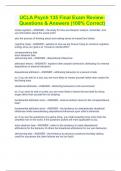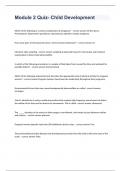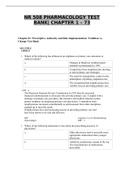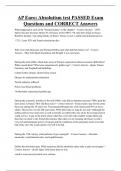Exam (elaborations)
UCLA Psych 135 Final Exam Review- Questions & Answers (100% Correct)
- Course
- Institution
UCLA Psych 135 Final Exam Review- Questions & Answers (100% Correct) UCLA Psych 135 Final Exam Review- Questions & Answers (100% Correct) social cognition - ANSWER - the study for how we interpret, analyze, remember, and use information about the social world also the process of thinking abo...
[Show more]






